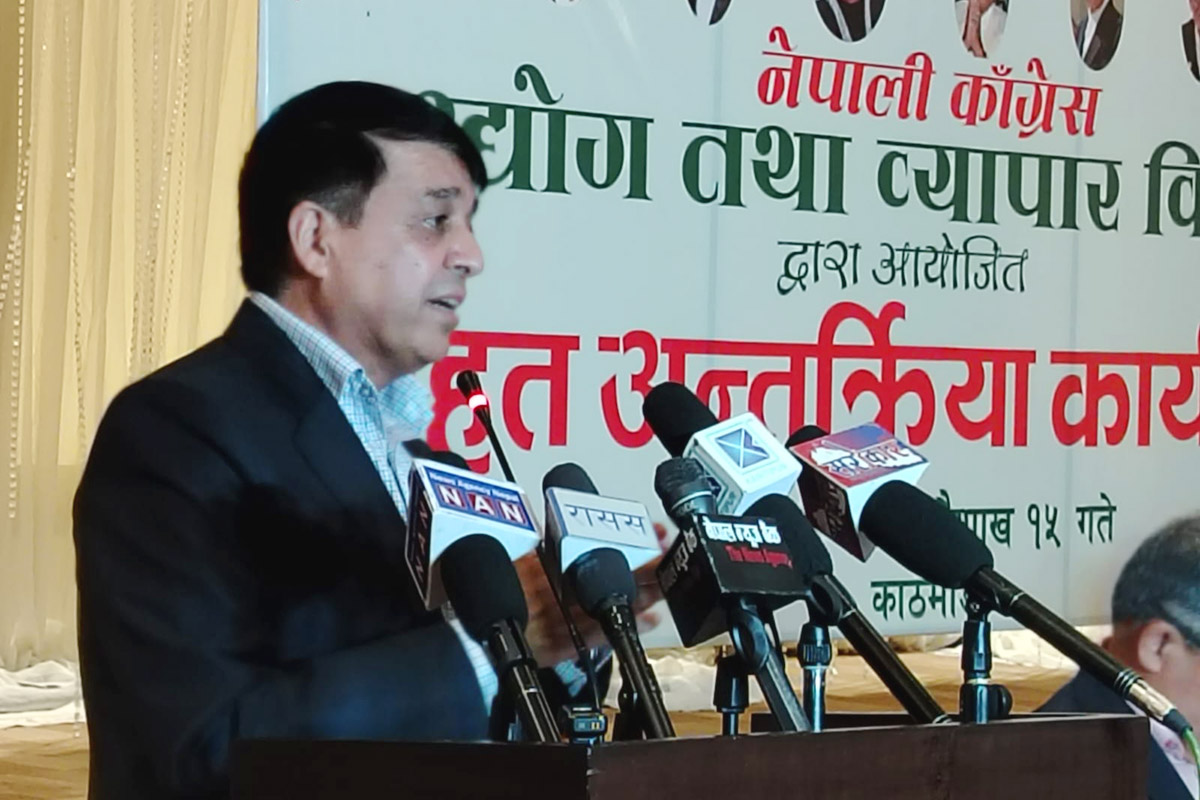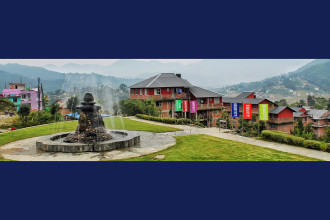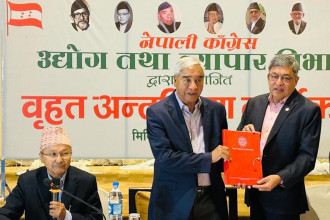
KATHMANDU: Federation of Nepalese Chambers of Commerce and Industry (FNCCI) has provided various recommendations to the Nepali Congress (NC) for inclusion in the budget for fiscal year 2025/26.
During a budget interaction programme organised by NC's Industry and Trade Department in Kathmandu on Monday, FNCCI President Chandra Prasad Dhakal proposed that the NC, as the largest political party in parliament, should prioritise objectives such as expanding an open economy with social justice, implementing structural changes for a new phase of economic reform, promoting the private sector and enhancing investment, fostering good governance, and improving revenue mobilisation and public expenditure.
A study conducted by FNCCI across the country identified political and policy instability as major obstacles to the growth of industry and business. Dhakal emphasised the importance of policy stability and suggested declaring the current decade as the 'investment decade' alongside implementing an integrated investment act.
He highlighted examples of countries like Thailand that achieved economic progress through stable policies and institutions. He urged the NC to lead an all-party consensus for policy stability and the establishment of strong institutions, proposing that policies remain unchanged for at least the next 10 years to eliminate conflicting interpretations and legal inconsistencies.
The FNCCI President pointed out that Nepal's budget process has struggled with capital expenditure for nearly two decades. He mentioned that only 17% of the budget is allocated for capital expenditure, and even then, only 60% of it is utilised, hindering development, market demand, and private sector growth.
FNCCI recommended limiting actual expenditure increases to no more than 15% over the next two years without affecting capital expenditure. To reduce public frustration and attract youth to entrepreneurship, FNCCI suggested ensuring good governance, maximising technology use, enabling business registration and completion through the Nagarik app, and replacing mandatory business renewals with a system based on revenue payment.
For enhancing governance, FNCCI proposed ending impropriety, retroactive laws, and immediate law changes, urging these reforms to be included in policies, programmes, and the budget for current fiscal year.
Dhakal warned of risks associated with Nepal's reliance on remittances, citing studies projecting the end of the demographic dividend after 2045. He stressed the need for a budget advancing the second phase of economic reforms.
According to FNCCI and World Bank studies, private sector contributes 81% to Nepal's economy and provides 86% of employment. Dhakal called for public recognition of the private sector's importance and the creation of an environment where businesses can operate with dignity.
Presenting data on Nepal's economic growth, he said that the average growth rate over three decades has been 4%, with low growth shrinking employment opportunities and driving approximately 6 million people abroad for work. He proposed a budget focusing on agriculture, tourism, energy, and IT sectors to promote import substitution, export promotion, and employment creation.
FNCCI also recommended measures to control unauthorised trade, including coordination with border security agencies of neighbouring countries and joint patrols. It suggested introducing an integrated act for non-tax revenue, as related provisions are scattered across various laws.
The NC organised the programme to gather private sector suggestions, with party president and former Prime Minister Sher Bahadur Deuba and other office bearers in attendance.






